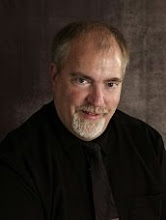The "fertility gap"

In a recent Wall Street Journal article, Arthur Brooks highlights what he calls a “fertility gap” between liberal and conservative Americans. He writes that conservative couples raise 41% more children than their liberal counterparts, and that the percentage increases annually.
It is true that political leanings are not hereditary, but I found it interesting that 80% of young people adopt the values—including liberal or conservative ones—of their parents.
Why the big gap? Some things are obvious. Homosexuals do not reproduce. Aborted babies never get to see the light of day. And both of these activist groups are central to the liberal coalition. But I suspect that the number may continue to increase as certain other dependable liberal voting blocs—Catholics and African-Americans—who, by the way, often are blessed with big families, realize that their moral values are rejected and belittled by the Democrat party.
I’m reminded of a “happiness poll” taken a few months ago that demonstrated that conservatives are also much happier than liberals. Only 28% of liberal Democrats say they are “extremely happy,” compared to 47% of conservative Republicans. As this column points out,
Married people and religious people are especially disposed to happiness, and both cohorts vote more conservatively than does the nation as a whole.
Marriage and commitment to religion translate to happiness and larger families. It’s not mere coincidence. As we’ve read in Schaeffer’s book, the absence of faith in God—pure humanism—is inevitably going to be reflected in pessimism and despair. These are the kind of people who, in my opinion, selfishly do not want to share their lives with children (the DINKs-double income no kids) and then declare “Who would want to bring a child into this awful world?” Christians optimistically view the future positively because God has promised eternal life through faith in His son’s redeeming work. We view children as God’s blessing to us, a trust, and a responsibility.
Try to relate the above to the concepts of “personal peace” and “affluence” as values. Discuss also how the proposition of society being absolute reflects itself in attitudes toward marriage and family.


<< Home